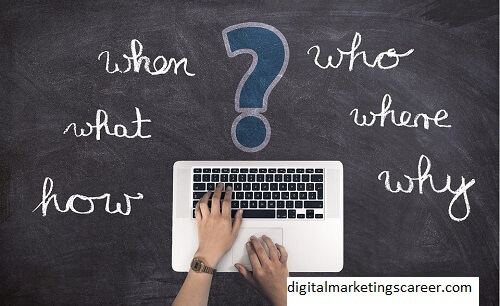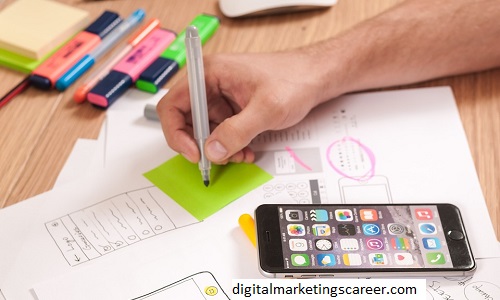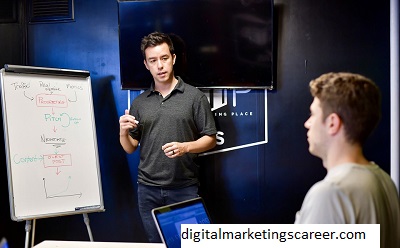Characteristics of Digital: A Critical Review
Marketing:
Digital marketing is a highly advanced tool, way beyond the mere use of any digital channel for products and services. It comprises vast volumes of activity that are executed through digital channels and the use of digital technologies and data to achieve objectives. Digital is highly dynamic, extremely measurable, and constantly evolving. All this makes digital the crucial weaponry for business houses adapting to ever-changing environmental dynamics. We take up in this article the basic characteristics of digital marketing and just how these different features shape the digital landscape from more traditional approaches.

1. Global Accessibility and High Coverage:
- This is one of the huge advantages as far as digital goes it’s global. Traditional marketing has always seemed pretty much localized: print, billboards, TV, and especially radio ads are only available to people who can receive them at the locality in which they are being transmitted. International businesses as well as small firms based in local towns can use digital for a very globalized approach to target consumers from all over the world.
- Digital avenues therefore enable businesses to write campaigns that can reach thousands and, in some places, millions of views across regions and demographics, by virtue of social media, search engines, and email marketing. Paid advertising, organic content, or influencer partnerships make it possible for businesses to reach markets they may never have touched otherwise.
2. Targeted and Personalized :
Marketing:
- One of the significant advantages of digital marketing is that it can reach specific audiences with targeted communications. In other words, unlike traditional, which “bombs away” based on tremendously broad audiences, in digital, businesses can segment their audiences along demographic, location, interest, behavioral, and purchase-related criteria.
- For instance, companies can use Facebook or Instagram to create very fine-grained profiles of customers and advertise to the most likely people to be interested in what a business sells. Similarly, with search engine marketing, where businesses can post ads for people who type in specific words associated with the product.
- Even personalization does not stop there at targeting. Businesses will be in a position to send personalized content to consumers based on the various stages of the sales funnel using email automation and remarketing, thus increasing the chance of a conversion.
3. Cost-Effectiveness:
- Compared to traditional channels such as advertisements over television, radio, or print media, digital marketing is usually much cheaper and affordable to small businesses and startups. Businesses can maintain control of their budgets, which would often be per click or impression in digital.
- For example, Google Ads allows companies to set their budget to only pay for clicks on their ad.
- With digital marketing, the company can track back return on investment for every campaign. Thus, the business can have an enhanced understanding of its effective strategies and where changes should occur in the budget.
4. Measurability and Analytics:
Marketing:

- This is what gives digital marketing that special something to make it so very different from its traditional counterpart: it actually does afford the luxury of measuring effectiveness in terms of the effort itself.
- With Google Analytics, for instance, businesses track the number of visitors, user behavior, conversion, and bounce rate amongst others. Social media platforms such as Facebook, Twitter, and LinkedIn among others have also detailed analytics that present data such as engagement rates, click-through rates, CTR), and conversion amongst others.
- Data immediacy, the ability to react to rapid changes in strategy, optimizes campaigns and yields better results. Suppose the paid advertisement campaign is not doing well; one can stop it, change it, or fine-tune it, whereas traditional advertisement would take a much more extended feedback loop.
5. Interactivity and Engagement:
- This way, digital marketing creates two-way communication between businesses and customers, which increases interaction to levels that a business never thought possible. This can be through any of the media: social networks, email, live chat, and customer reviews.
- Especially, with the help of such social media sites, businesses can directly communicate with the users. Brands can interact with their customers by promptly answering questions or settling complaints using such media platforms. Brands may just chat with people, which helps create a connection between the brand and its audience.
- Another reason that encourages promotion using digital is interactive content that may include quizzes, surveys, polls, and contests. Such content always leads to attention but also is noticed to bring about valuable data that businesses can use to refine their strategies.
6. Speed and Flexibility:
Marketing:
- Campaigns undertaken through digital marketing are much faster to create and adjust compared to more traditional kinds. One good attribute of digital media is that the content can be released to public view immediately, and even the biggest campaigns can be scaled up or scaled down if the current performance is not so good. To illustrate this example, within a minute after launching the new product, it can create an email campaign or social media post and send it. Similarly, if an ad is failing, it can be stopped and modifications are done on the spot.
- Digital is fast and agile enough to help companies adapt plans and orientations in response to rapid changes in consumer behavior, market trends, or even the world at large. And because of this aspect, digital is a great weapon for today’s fast-changing world.
7. Integration with Other Channels:
- Although a digital strategy itself can be incredibly strong, it does well when layered on top of other marketing efforts. Many companies today follow some version of an omnichannel marketing approach where digital channels like email, social media, and SEO are supplemented by traditional channels: Events, Print, Advertisements, and Direct Mail are a few examples.
- For instance, there can be a company that has a television commercial campaign along with complementing Facebook-targeted advertising for an item. All these can synergize, hitting the customer at different touchpoints. Integrated provides a seamless brand experience to the consumer.
8. Automation capabilities:
Marketing:
- Automation for sure is one of the biggest benefits of digital. Consider email platforms, CRM systems, or the scheduling of posts on social media platforms that have made businesses’ marketing work much easier.
- For example, automated emails can send a personalized message to a customer depending on his behavior; for instance, reminders of cart abandonment and special birthday offers. Similarly, through means like Hootsuite or Buffer, scheduling social media posts means businesses can post on time and ensure nonstop online presence not necessarily through posting every single day.
9. Content-Based Approach:
- One of the trends in digital is high interest in creating and sharing content. The center of attraction and retention of customers in content will feature different forms of blog posts, videos, podcasts, infographics, and social media postings meant to create value for audiences.
- The content marketing process helps in brand awareness and enables companies to enhance their SEO rankings. Given that any meaningful content is liked by the search engines, businesses can enhance organic search presence and increase the amount of traffic to the website as a result of posting content that provides helpful information to users.
10. Continual Innovation and Evolution:
Marketing:
- The digital scenario is dynamic. New tools and trends keep emerging every other day, and what works today may not meet tomorrow’s needs. In order to stay ahead of the competition, a business has to be aware of new technologies, consumer preferences, and shifts in the industry.
- For example, AI, voice search, and AR change the type of creative thinking as well as the way of delivering a digital campaign. To succeed in the long run, someone must watch for such developments.
Frequently Asked Questions on Digital :
Marketing:
1. What is the difference between digital and traditional marketing?
The process of goods and services via digital media-internet, social media, and search engines is known as digital marketing. A traditional campaign is much more likely to be created around offline media ads, billboards, TV, and radio for example has a different character than a traditional campaign would ever have. Compared to the more reach of a traditional campaign and considerably less measurable one, digital campaigns tend to offer much more targeted and cost-effective outcomes.
2. How would it help me grow my business?
This will give your business many other advantages-including higher visibility and more people visiting your site, increasing customer engagement, and leads. With this, you may bring yourself closer to customers and manage to improve conversion rates through varied strategies like SEO, content, social media marketing, and email campaigns, too. Real-time monitoring also allows you to fine-tune efforts for maximal growth.
3. What are the most in-demand Digital Channels
Some of the many popular digital channels include the following:
- Social Media (Facebook, Instagram, Twitter, LinkedIn)
- Search Engine Optimization
- Email Marketing
- Content
- Pay-Per-Click Advertising
- Influencer
- Affiliate Marketing
- Display Advertising
Each of them allows business to reach their target audience through different media channels.
4. What is Search Engine Optimization and why is it important for digital?
This is how SEO is defined as the optimization of your content on your website to rank high in the SERPs for specific keywords. It is crucially an activity of the correct process of digital marketing since higher visibility within the search engine will lead to more organic traffic, which may be one of the cheapest and most sustainable means to grow an online presence.
5. How do I know if my activities in digital are effective?
Tools like Google Analytics, social media insights, and even email campaign reports reveal success. The effectiveness of a campaign can be gauged in terms of traffic going through the website, conversion, return on investment (ROI), click-through rates (CTR), and engagements.
Conclusion:
Marketing:

In short, digital marketing is very flexible and competitive in the corporate world as it will not only help a business reach its targeted audiences but also measure performance and adjust on the fly. The uniqueness that lies in embracing its characteristics can be used to ensure that businesses thrive in a digital age and remain ahead of the curve within this ever-changing landscape.
